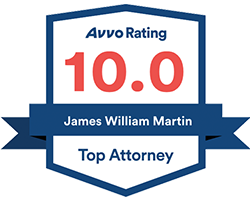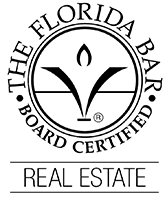What Happens to a Florida Homestead During Probate?
When a loved one passes away, one of the first questions families ask is, “What happens to the house?”
In Florida, the answer isn’t always simple — but it’s one of the most important parts of the probate process. Florida’s homestead laws provide some of the strongest property protections in the country, and they can have a big impact on who inherits the home, whether creditors can reach it, and whether it even needs to go through probate at all.
In this article, I’ll explain what “homestead” means under Florida law, how it’s treated during probate, and the key steps families should take to protect their rights.
What Is a Florida Homestead?
Under the Florida Constitution (Article X, Section 4), a homestead is a person’s primary residence — the home where they actually live with the intent to remain.
Homestead status is important because it provides three key protections:
- Creditor protection: Most creditors can’t force the sale of your homestead to pay debts.
- Tax benefits: Homestead property qualifies for a valuable property tax exemption and cap.
- Inheritance protection: The law restricts how a homestead can be devised (left by will) to protect surviving spouses and minor children.
It’s worth noting that only one property can be a homestead of a Florida resident, and it must be in Florida.
Why Homestead Matters in Probate
When someone dies owning a Florida home, determining whether that home qualifies as their homestead is crucial.
That classification affects three major things:
- Who inherits the property.
- Whether creditors can make claims against it.
- Whether it needs to be probated at all.
If the home qualifies as a protected homestead, it may pass outside the normal probate process, saving the family time and shielding it from certain estate expenses.
Who Inherits the Homestead?
Florida law provides very specific rules about who inherits a homestead that is owned only by the decedent (the person who dies):
- If there’s a surviving spouse and minor children:
The spouse receives a life estate, and the lineal descendants (children) receive the remainder interest — meaning they become full owners after the spouse’s lifetime. This can be varied in some cases. - If there’s a surviving spouse but no minor children:
The spouse may take the homestead outright (in fee simple). - If there’s no surviving spouse:
The homestead passes to the decedent’s heirs according to the will or, if there’s no will, through Florida’s intestacy laws.
These rules can’t be overridden by a will if minor children are involved — one of the ways Florida ensures family protection.
Does Homestead Go Through Probate?
The homestead is not technically part of the decedent’s estate, and it’s usually not subject to administration like other assets of the decedent. Instead, the personal representative or heirs typically file a Petition to Determine Homestead Status with the probate court.
Once the court declares the property to be the decedent’s protected homestead, it:
- the court order confirms that the homestead passed as of the decedent’s date of death and names the persons to whom it passed,
- Is shielded from most estate debts (but not mortgages, taxes, and other liens on it), and
- Can later be sold or transferred with clear title, depending on other title issues.
This court determination is essential — title companies and real estate agents often require it before a sale or refinance.
Creditor Protection
One of the most valuable features of Florida’s homestead law is its strong protection from creditors.
If the property qualifies as a constitutional homestead, it cannot be used to pay most debts of the estate, even if the estate itself is insolvent. That means credit card balances, personal loans, and other unsecured debts are typically off-limits.
There are exceptions, however:
- Mortgages or other voluntary liens
- Taxes
- Mechanic’s or contractor’s liens for improvements
These can usually still be enforced against the homestead property.
Common Mistakes and Misunderstandings
Because Florida’s homestead laws are unique, families often make costly mistakes, such as:
- Assuming any property in Florida qualifies as homestead.
- Failing to file the Petition to Determine Homestead properly.
- Contracting to sell the home before asking the probate court to confirm homestead status.
- Misunderstanding how joint ownership or trusts affect homestead rights.
These errors can delay probate, create title problems, and even lead to litigation.
Conclusion
Florida’s homestead laws are designed to protect families — but they can be complicated. Determining what happens to a homestead during probate requires careful attention to the facts, the deed, and the decedent’s family situation.
If you’re dealing with a loved one’s estate and wondering what happens to their home, Florida real estate and probate attorney James W. Martin can help you determine the property’s status, guide you through the homestead petition process, and make sure your rights are protected.
Other Practice Areas
This page relates to one of the practice areas of St. Petersburg, Pinellas County, Florida lawyer James W. Martin. For other practice areas, click here.
Contact
If you have the need for a Florida real estate and probate attorney, you may use the contact form below or call James W. Martin directly at 727-821-0904 or email him at jim@jamesmartinpa.com for an initial consultation.
This page was written by St. Petersburg Florida real estate and probate attorney James W. Martin and was last updated on October 30, 2025.






